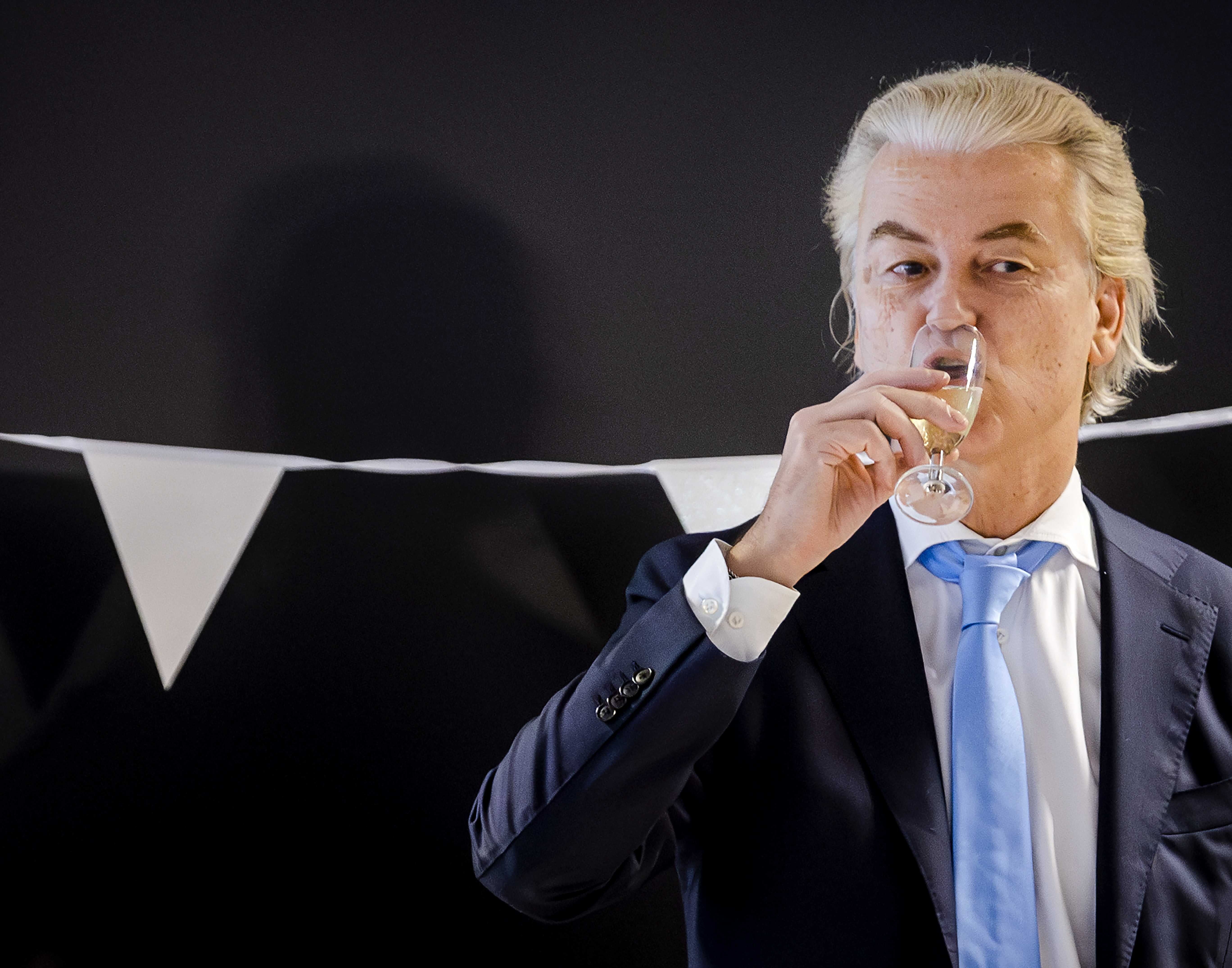How scared should we be of the rise of the ‘Dutch Trump’?
The election triumph of the avowed anti-Islam party leader Geert Wilders tells us a lot about the incendiary state of Europe, writes Mary Dejevsky. But fears of a far-right takeover are no cause to panic – yet


Just when you may have thought that it was safe to turn away from the vagaries of elections in Europe and focus instead on the many other issues troubling the continent today, voters in the Netherlands have become the latest to fuel fears of an ascendant far right. Easily topping this week’s polls, with 37 parliamentary seats (out of 150), was the Freedom Party (PVV) of the veteran nationalist politician, Geert Wilders. The next, with 25 and 24 seats respectively, were a left-wing alliance (headed by another political veteran, Frans Timmermans), and the centre-right party, followed by a long tail of smaller parties straddling the gamut of politics from right to left.
Wilders has been a fixture of Dutch politics for a long time, entering parliament a quarter of a century ago, and founding his Freedom Party in 2006. While somewhat toning down his anti-Muslim invective this time around, he stood on his familiar platform of hostility to migration, resisting what he sees as the dilution of Dutch national identity, and exit from the EU. But this time, in one major respect, he was knocking at an open door. The coalition that had governed the Netherlands for nearly two years and enabled the Conservative, Mark Rutte, to remain prime minister for a record 13 years, collapsed over a dispute on – hardly a surprise – migration.
The Rutte government had tried, and failed, to bring in stricter limits on asylum claims, in response to public concern about unprecedented numbers and overflowing camps. The small Christian party objected to the prospect of splitting up families if numbers of dependants were limited and, as is the risk with small faith parties, there was to be no compromise. The coalition could not be reconstituted, and the opportunity was created for Wilders to march in. The wonder was perhaps less that his party did so well, than that the margin of his victory – indeed, his victory at all – was not confidently predicted in opinion polls.
Join our commenting forum
Join thought-provoking conversations, follow other Independent readers and see their replies